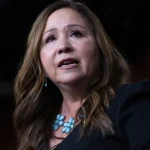
The city of St. Petersburg, Florida, is allocating $1 million from an opioid settlement to nonprofit organizations working to address the opioid crisis through treatment and recovery support services.
As part of the settlement, St. Petersburg will receive $6 million over 18 years.
The city is looking to fill resource or service gaps in the community and plans to use the money to offer grants for new and innovative proposals that are not already being funded by existing sources, the city said in a news release.
FLORIDA TRANSIT AGENCY INCREASING ACCESSIBILITY OF NARCAN TO HELP REVERSE OPIOID OVERDOSES
Grants will be awarded to proposals that offer respite housing, overdose prevention, substance use prevention and education, harm reduction and peer support, with priority given to proposals that focus on respite housing, harm reduction and peer support.
“There’s never enough help for addiction as rates continue to increase,” Matthew Schaefer, the director of operations for Real Recovery Solutions, told Fox 13.
Real Recovery Solutions, which runs sober living facilities in Pinellas County and around the Tampa Bay region, is not eligible for the grant money but does work with non-profits that can use the funds to sponsor someone, the outlet reported.
OREGON REVERSES COURSE AND RECRIMINALIZES DRUG POSSESSION
“[Non-profits] will fund maybe two to three weeks of sober living. And give that recovering addict a chance to go find a job and start paying their own rent,” Schaefer said.
One of the biggest needs in the region, according to Schaefer, is making detox treatment more accessible and affordable. Many detox centers are privately funded and require full payment or insurance, but others have long wait lists to get a bed.
“[Addicts] are told, ‘hey, you know, we’re three to five days out from a bed.’ There’s a lack of resources for our underfunded or noninsured community. I think that that could be a big help. Unfortunately, that three to five days could really, truly be life or death,” Schaefer said.
Nonprofit groups were given until October 20 to apply for grant money through the city of St. Petersburg.







